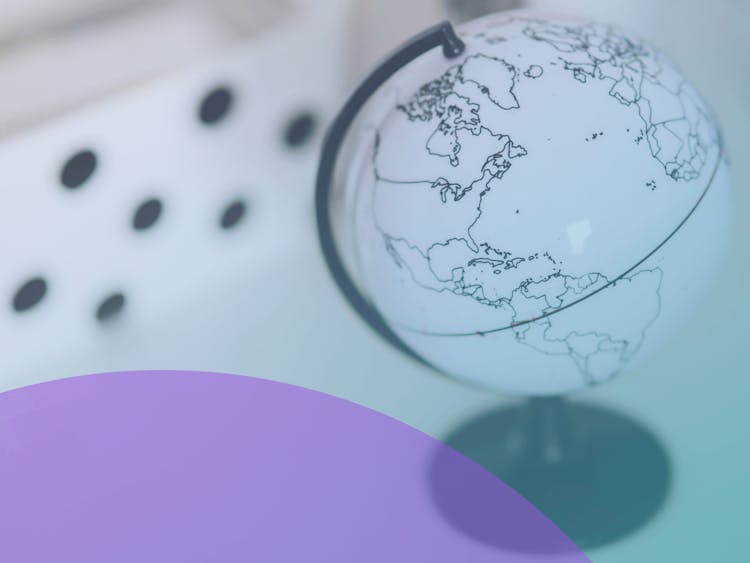Mastering Legal Lexicon: How Terminology Management Streamlines Legal Translations

In today's globalized business landscape, the intricate dance of legal dealings often unfolds on a multilingual stage. Precision, consistency, and cultural appropriateness are unforgiving necessities — there's no room for approximation or cultural ignorance. Enter the world of legal translations, a terrain as complex as it is critical, where the suitable conveyance of legal terminology can make or break a case. This blog post explores the often-underestimated power player behind successful legal translations — terminology management. You'll discover why it's not merely an administrative procedure but a strategic tool that can significantly streamline and bolster the output of legal translations.
Grasping the Complexities of Legal Terminology
One encounters a labyrinth of distinct phrases and technical terms by jumping into legal documents. Every lawyer or legal professional would agree that the language of the law is more than just words strung together. It's a dense tapestry of principles, policies, and practices, each precisely woven into a language of its own.
Over the past decade, legal proceedings have transformed from local to global. Numerous nations and, consequently, numerous laws now frame our understanding of what's right or wrong, legal or illegal. Firms operate across boundaries; their operations now require conforming to the legalities of vastly diverse jurisdictions. This global landscape amplifies the complexity of the situation many-fold.
Misunderstanding the legal terminologies in even a single document can transform a situation from black and white to an array of disarrayed grays. Lawyers and legal experts are well-trained to nuance their interpretations, reducing the risk of disputes and disagreements—but what about when these complex terminologies need to be translated from one language to another?
Translators play a crucial role in this context. A legal translator is not just a bridge between languages but a conduit that facilitates an uninterrupted law flow across linguistic barriers. Every word they translate adjusts the scale of justice. The adage "Lost in Translation" finds its most profound resonance here. A single misinterpreted terminology can change the text's whole meaning, leading to potential lawsuits or even complete business failure. This underscores the vital importance of correct and expert translation in legal dealings.
But how can one ensure such precision while handling complex legal terminologies? The solution is the strategic tool of terminology management.
Delve deeper into how terminology management effectively streamlines the legal translation process.
The Power of Terminology Management
Terminology management is the powerful secret behind successful legal translations. It's not just a procedure—it's a strategic function, a tool that can significantly amplify the efficiency and accuracy of translating legal documents.
The first step in terminology management involves compiling a comprehensive glossary of key terms. For legal translators, this is a unique dictionary glossary. It includes specific legal phrases, definitions, terms, and equivalent translations in one or more languages. This is a painstaking process demanding patience, skill, and utmost attention. After all, "good faith" or "tort" needs careful handling. This organized record mitigates the chance of error and ensures consistency across documents for a single subject or case, thereby maintaining the original intent and meaning.
Beyond this, technology plays a crucial role in terminology management. Technology-driven systems, like Computer Assisted Translation (CAT) tools, allow for the creation larger, structured, and searchable databases of terms that can quickly provide translators with terms' usage nuances and rules. These tools offer the additional benefits of saving time and reducing effort.
Furthermore, to ensure a thorough and accurate translation, collaborating with legal experts well-versed in the law of that specific jurisdiction is often necessary. An engaging, collaborative dashboard that allows for real-time updates and monitoring can significantly enhance the quality of the final translated document.
In conclusion, terminology management in legal translation is no longer a luxury—it's essential that one can distinguish between a victorious or a misguided legal conclusion. This efficient tool can assure precision, save time, and reinforce mutual understanding. At Hareword, we firmly believe in the strength of effective terminology management and how it can elevate legal translations to new heights.
Successful Implementation of Terminology Management
We recently collaborated with a well-known multinational corporation that needed help translating their legal documents. The company's documents were sent to various countries and translated into several languages. However, the translations were only sometimes consistent, leading to misunderstandings and legal inconsistencies.
Understanding the gravity of the situation, we introduced our comprehensive terminology management system. It started with gathering a team of legal and linguistic experts to construct an extensive glossary of key terms, including those unique to the client's specific industry. The glossary covered many languages, considering the client's global operations.
The next step was strategically using our sophisticated CAT tool to create an organized, searchable database of terms. This tool allowed instant access to all recorded terms' definitions, context, and usage rules. The database was continuously updated in real time to reflect any changes and keep the translations accurate and consistent.
Additionally, our collaborative dashboard fostered efficient communication between the translators and the client. It allowed for real-time updates and monitoring, enabling us to accommodate any last-minute changes and maintain the quality of translations.
The implementation of our terminology management system turned out to be a resounding success. The client reported a significant improvement in the accuracy and consistency of their legal translations. This, in turn, strengthened their global communication and minimized the risk of legal disputes due to translation errors.
This case study is a testament to the power of effective terminology management in legal translations. At Hareword, we understand that every word matters—especially in legal documents. This mission drives us to leverage our expertise and technology to deliver unparalleled accuracy and efficiency in every project we undertake.
Hareword's Approach to Terminology Management
At Hareword, we understand that precisely handling legal terminologies is pivotal for a successful translation. Legal document translation is far from merely swapping words from one language to another. It requires a highly skilled, experienced translator with a rock-solid understanding of the legal systems and terminologies of both the source and target language.
We have a team of professional translators with a deep understanding and practical exposure to the legal field, which is critical when it comes to interpreting and translating complex legal terminologies. Their adept linguistic skills and their comprehension of law ensure that each term is translated with utmost precision, leaving no room for ambiguity.
We also exploit state-of-the-art technologies such as Translation Memory and advanced CAT tools to build a comprehensive repository of legal terms and phrases commonly used in the specific field of law of our client's legal documents. This ensures consistency across multiple documents and maintains uniformity in translation.
The unique aspect of our methodology is our collaborative dashboard. This platform fosters seamless communication, supporting real-time collaboration between our translators, clients, and the project management team. Our clients can monitor every project phase, providing instantaneous feedback and clarifications, ensuring absolute clarity and precision across their projects.
Taking Legal Translations to the Next Level with Hareword's Localization
Legal translations mark just the first step in the path to global communication. To truly resonate with your international audience, one must go beyond verbatim translations, and that's exactly what we do at Hareword with our localization services.
Localization involves adjusting your content to make it culturally relevant and meaningful to your target audience. It considers various aspects such as local customs, habits, idiomatic expressions, and humor. By incorporating localization in our translation approach, we ensure that the translated document is accurate in every legal aspect, relatable, and understandable for the target audience.
To work effectively across multiple jurisdictions, legal documents must comply with local laws, but more than that, they should speak in a language that the local populace understands.
At Hareword, our localization experts work extensively on making your legal document culturally compatible, maintaining the effectiveness and authoritativeness of the document even in the target language and culture.
Conclusion
Managing terminologies in legal translation is an aspect businesses must pay attention to, given its inherent complexity and its profound influence on the comprehension of the translated documents. At Hareword, we are committed to delivering top-notch legal translation services rooted in stringent terminology management.
From employing seasoned legal translators to exploiting advanced translation technologies to incorporating effective localization strategies, our multifaceted approach ensures that your legal documents are translated with precision, consistency, and cultural relevance.
Our understanding of language not just as a tool for communication but as a carrier of culture, laws, and sentiments sets our services apart. We are dedicated to helping you adopt a truly global stance with communication that respects and resonates with every culture.
For more information on how we can assist you in overcoming language barriers and effectively communicating with your clients globally, feel free to get in touch. Let Hareword be your partner in your globalization journey. With us, you can be assured of accurate translations that articulate your message just how you intended it to be.

Serkan H.
Serkan is a seasoned expert in B2B marketing with an emphasis on delivering substantial ROI. For over a decade, he has been deeply involved in various projects, from B2B acquisition and conversion to content marketing, nurturing programs, and beyond.
Related Contents
Weekly Newsletter
Get Guidance on Localization, Drive Top-line Revenue





